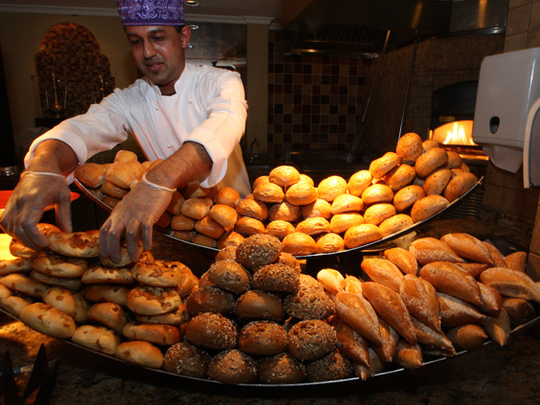
Dubai: Planning an iftar meal that ensures no food wastage can be tricky, but isn’t impossible.
According to the UK’s National Health Service (NHS), within a healthy, balanced diet, a man needs around 2,500 calories a day. For a woman, that figure is around 2,000 calories a day.
ChooseMyPlate.gov, an initiative of the US Department of Agriculture, allows people to calculate the right amount of portions required in weekly meals.
For a 2,000 calorie pattern, this means consuming six ounces of grains, two and a half cups of vegetables, two cups of fruits, three cups of dairy products and five and a half ounces of protein foods per week.
However, for many people, the anticipation of a meal at the end of a long fast often leads to overindulgent preparation and cooking. That usually means a whole lot of food ending up in the trash.
Based on average dietary requirements, we broke down a few simple iftar meals, recommended by the NHS, that can fulfil one’s calorie intake for the day while simultaneously preventing leftovers from piling up.
Iftar option 1
Break the fast with a date and water.
Make a meal out of pita bread and grilled chicken breast, with a tossed salad and hummus. Finish it off with one or two pieces of baklava to satisfy the sweet craving.
Total calories: 750
Iftar option 2
Break the fast with a date and water.
Begin with a cooked chicken breast piece and fistful of cooked rice. This can be eaten along with vegetable curry and a mixed salad. Follow it up with a bowl of fruit salad with single cream.
Total calories: 695
Iftar option 3
Break the fast with a date and water.
Have half a cup of cooked pasta, with a serving of vegetables and a piece of chicken or fish. To satisfy your sweet craving, have a slice of plain sponge cake with a tablespoon or two of custard.
Total calories: 695












